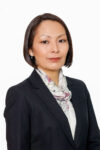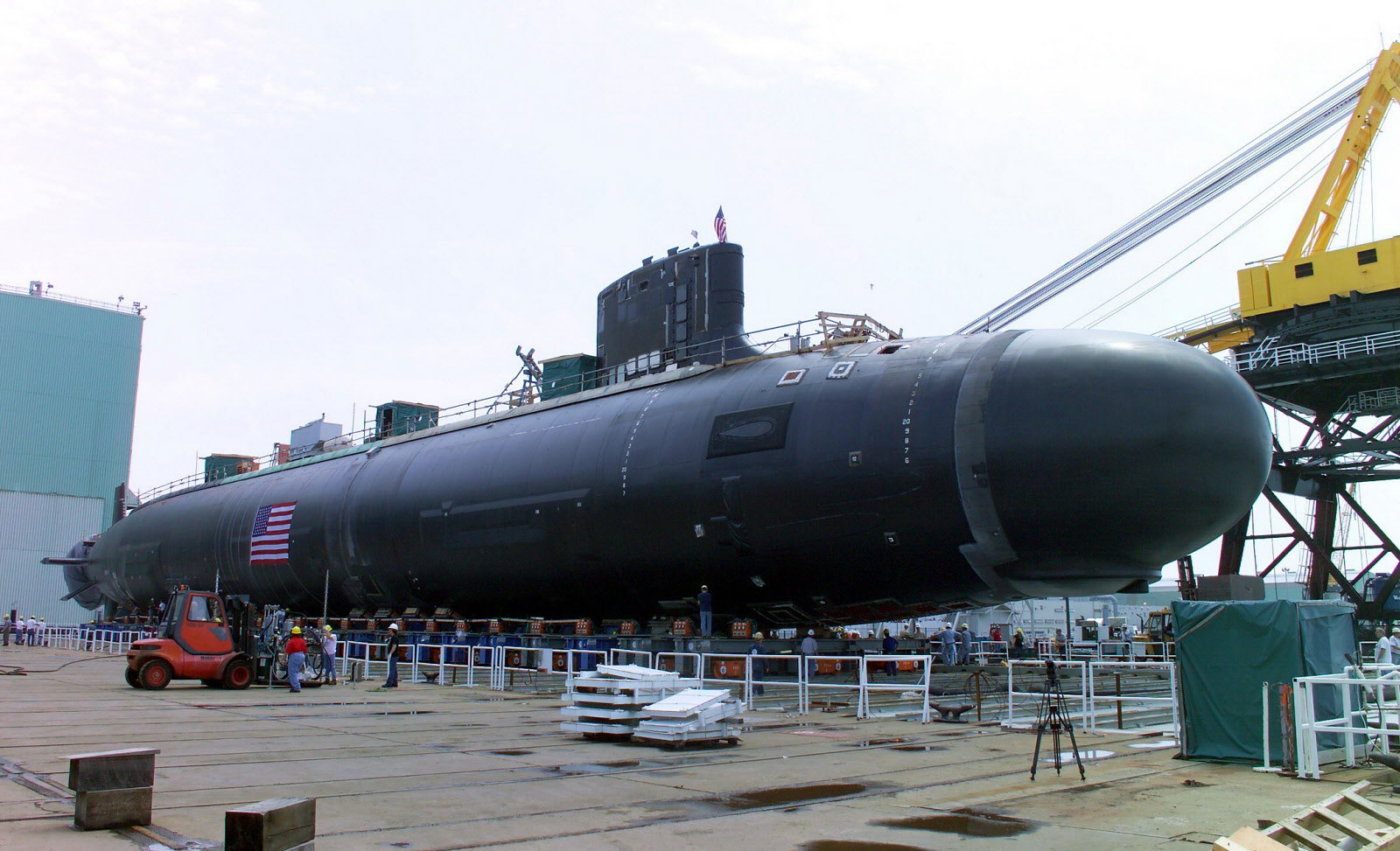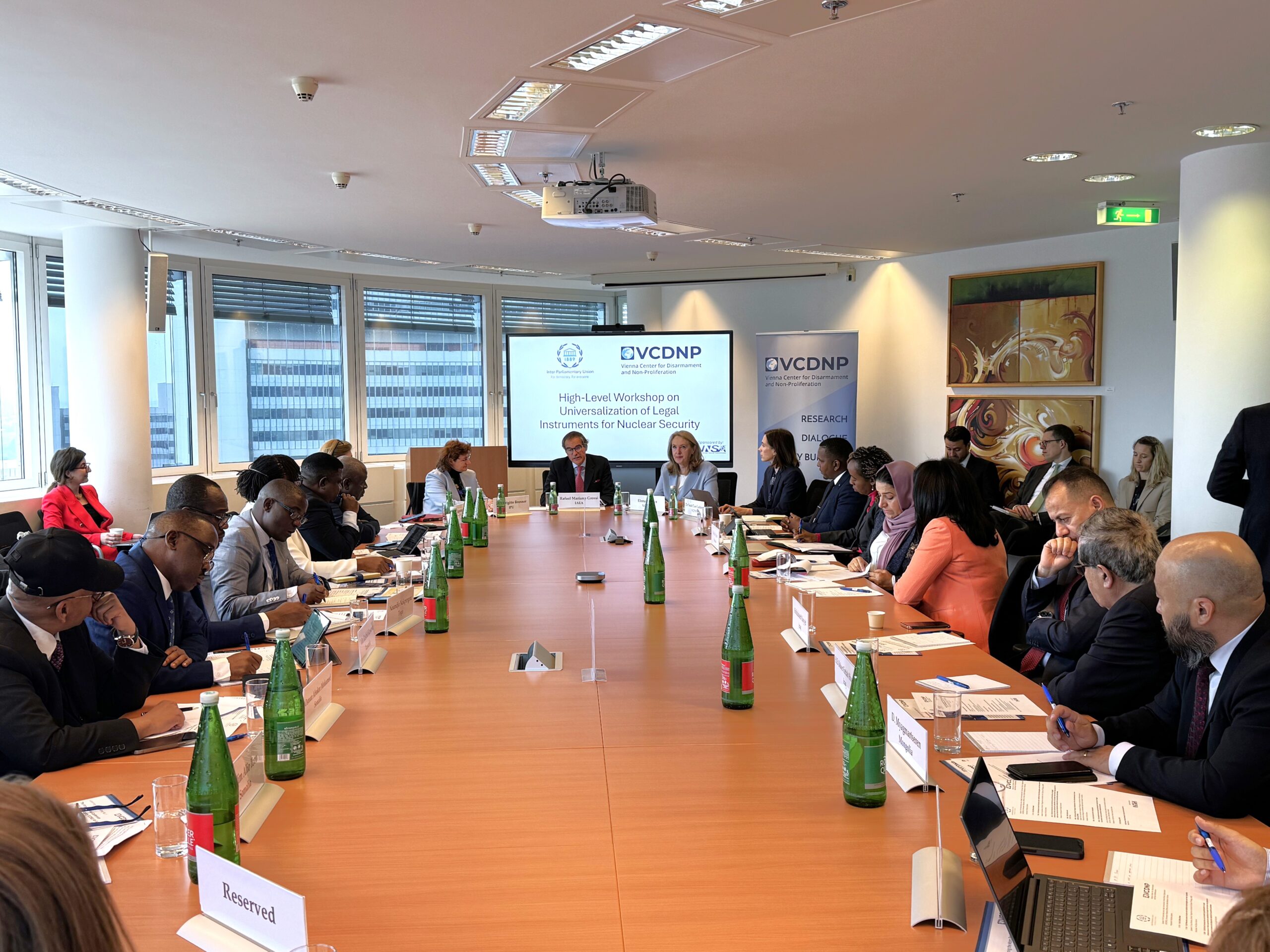
From 19 to 30 October 2020, the VCDNP held its twentieth short course on nuclear non-proliferation and disarmament. The course was held in an online format, and the VCDNP welcomed 47 diplomats and practitioners from government agencies, embassies, permanent missions, non-governmental organisations, academic institutions, and the press. This diverse group included participants from 32 countries and all continents. Women made up 60 percent of the participants, and 56 percent of the lectures included women speakers.
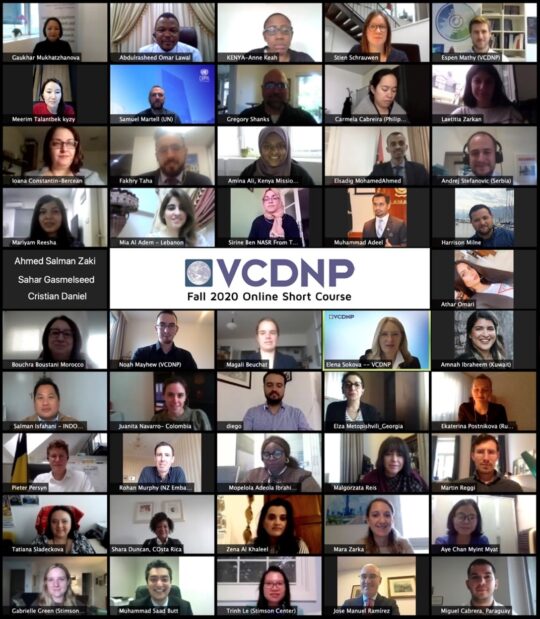
The nine-day course was designed to provide an introduction to nuclear to non-proliferation, arms control, and disarmament and included an overview of the history of the non-proliferation regime, its constituent elements, and current state of play.
In light of the postponement of the tenth Review Conference of the Treaty on the Non-Proliferation of NuclearWeapons (NPT), which would have marked the 50th anniversary of NPT’s entry into force, the course included a high-level panel discussion featuring Ambassador Maria Teresa Almojuela (Philippines), Ambassador Aidan Liddle (United Kingdom), and Ambassador Ann-Sofie Nilsson (Sweden). The closed session allowed for a candid exchange of opinions about key issues and priorities, possible paths to an agreed outcome, as well as opportunities and challenges posed by the postponement of the Review Conference.

During the course, emphasis was placed on the profound understanding of the political, legal, and technical elements within the nuclear field. Lectures covered a wide range of topics including the NPT and its review cycle, humanitarian impact of nuclear weapons and the Treaty on the Prohibition of Nuclear Weapons (TPNW), the International Atomic Energy Agency (IAEA) and nuclear safeguards, as well as the Comprehensive Nuclear-Test-Ban Treaty (CTBT) and its verification system. Two case studies examined the nuclear programmes of Iran and the Democratic People’s Republic of Korea. Moreover, topics covered in the course included nuclear security, export control regimes, international disarmament initiatives, nuclear risk and risk reduction, and the establishment of nuclear-weapon-free zones (NWFZs), in particular the prospects for a zone free of nuclear and all other weapons of mass destruction in the Middle East.
A panel discussion on the future of nuclear arms control featured perspectives from China, Europe, Russia, and the United States. A conversation with Ambassador Benno Laggner (Switzerland) on the last day of the course addressed the broader questions regarding the current state and trends in multilateralism and disarmament diplomacy.
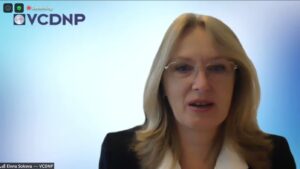
Experts and senior officials from international organisations, government agencies and civil society gave presentations during the course, including Dr. John Borrie (UNIDIR), Diego Cándano (The Stimson Center), Dr. Mohammad Hassan Daryaei (CTBTO), Dr. Marc Humphrey (IAEA), Duyeon Kim (CNAS), Ambassador Alexander Kmentt (KCL), Magnus Løvold (ICRC), Dr. Khammar Mrabit (Moroccan Agency for Nuclear and Radiological Safety and Security), Laura Rockwood (Open Nuclear Network), Névine Schepers (ETH Zurich) and Dr. Tong Zhao (Carnegie Endowment for International Peace). The VCDNP lecturers included Noah Mayhew, Gaukhar Mukhatzhanova, Elena Sokova, and Dr. Nikolai Sokov.
To facilitate interaction among the participants and between lecturers and participants, the program included online polls, quizzes, and designated discussion sessions with breakout groups. To enhance engagement among past and current course participants, the VCDNP invited previous course participants to one of these interactive sessions. At the conclusion of the course, participants were able to test their knowledge by participating in an interactive quiz game. Not only did the game demonstrate how much participants learned throughout the course, it also provided insights into the topics they wished to revisit using preparatory material, presentation documents and additional resources provided by the Center.

At the end of the course, the participants completed an anonymous assessment of various aspects of the short course and its contribution to their professional development. The short course received high marks for providing insightful information that the participants could use in their work in the field. Below are some of the comments provided by participants (quoted as written):
It gave me the understanding how complex the subject is and moved to further studying. I will use the knowledge I received in my further work — now I understand what questions to pose and how all the elements are interconnected. Truly inspiring.
***
The course will definitely improve my understanding regarding documents, reports, and decision[s] in the IAEA. For example the lecture on nuclear fuel cycle is really help me to understand more deeply on the safeguards or JCPOA reports.
***
This was absolutely what I hoped for. Wonderful speakers, all the topics covered across the board, and great moderation. From a content point-of-view: great!
***
I loved how well it was organized, the friendly atmosphere and the professional approach.
The VCDNP extends its gratitude to the Government of Norway, the Carnegie Corporation of New York and John D. and Catherine T. MacArthur Foundation for their generous support that made this course possible.

